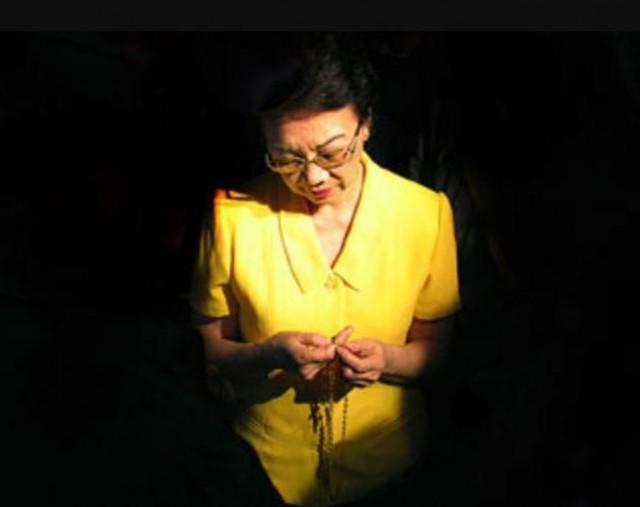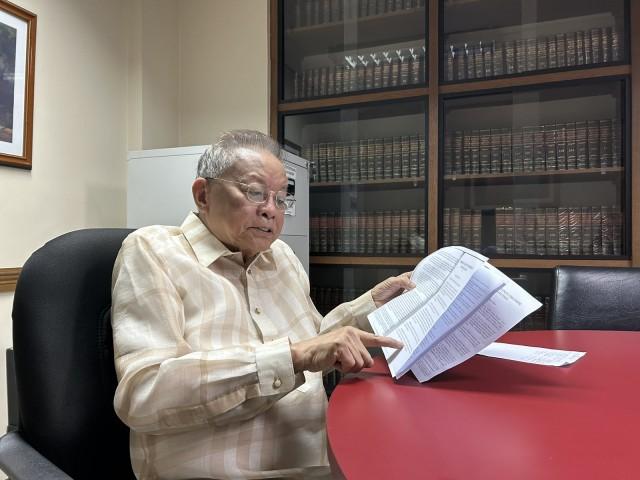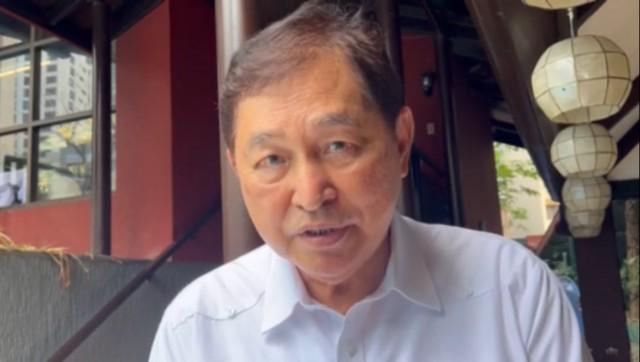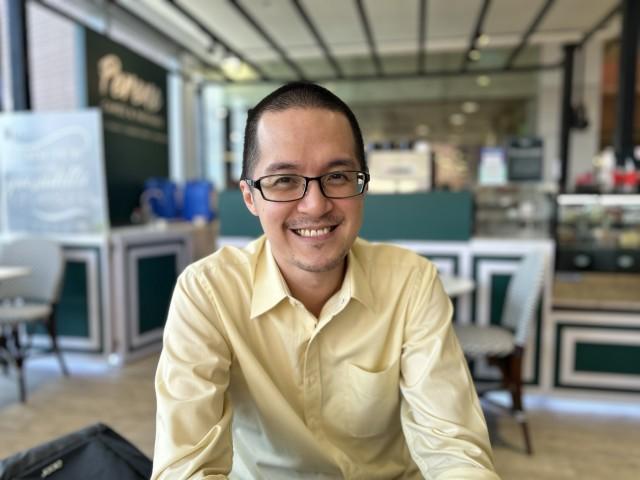A constitution named Freedom: The interim Charter under Cory Aquino
When Corazon Aquino came to power on February 25, 1986, she enjoyed “absolute powers” as the President of a revolutionary government. The 1973 Constitution, under which ousted President Ferdinand Marcos Sr. ruled, was no more and there were doubts on how the rule of law would hold in the country.
The housewife-turned-president, however, would have none of the absolute authority that came with being the head of a revolutionary administration. She ordered the crafting of a constitution, all seven articles of it, under which she would rule before the ratification of what we now know as the 1987 Charter.
Provided under Aquino’s Proclamation No. 3, the new constitution slashed the powers of the President but still gave her the authority to make laws in the absence of Congress or a parliament, and control and supervision over mayors, and governors across the country.
This is the story of the Freedom Constitution.

"Freedom is a strange gift, almost as difficult to use wisely as it is to lose."
The late President Corazon “Cory” Aquino declared this in a speech during the World Conference on Human Rights in Vienna, Austria back in June 1993, almost a year after completing her six-year term as president of the Republic of the Philippines and withstanding nine coup attempts in the process.
Former Supreme Court Justice Reynato Puno said the nine coups against the post-EDSA Aquino administration—for better or for worse—was a result of her decision not to hold on to great power more than she should by ordering the drafting of the 1986 Provisional “Freedom” Constitution.
Enacted through Presidential Proclamation 3, the Freedom Constitution granted Aquino vast authority from having sole legislative power to gaining control of and general supervision over all local governments. At the same time, however, she limited those powers since the Freedom Charter was only in place for less than a year.
Presidential Proclamation 3 was signed on March 25, 1986—exactly a month after the People Power revolt ended the 20-year rule of the late President Ferdinand Marcos Sr.
Puno, one of the authors of the Freedom Constitution, told GMA News Online that Aquino ordered the writing of the provisional charter as dictated by the unusual circumstances following Marcos’ ouster.
“When the revolution succeeded, naturally, the 1973 Constitution, under which President Marcos operated, ceased to have any effect. You had a revolution, [but there was] no constitution, no laws. And there is no government that can succeed for long under those circumstances. Otherwise, you will have total chaos and confusion,” Puno said.
Part of that vacuum was a result of the abolition of Congress, leaving no agency or branch of office making laws. However, Puno said, somebody had to fill this void.
The Freedom Charter allowed Aquino to prioritize measures “to achieve the mandate” of the people:
- completely reorganize the government and eradicate unjust and oppressive structures, and all iniquitous vestiges of the previous administration;
- make effective the guarantees of civil, political, human, social, economic, and cultural rights and freedoms of the Filipino people, and provide remedies against violations thereof;
- rehabilitate the economy and promote the nationalist aspirations of the people;
- recover ill-gotten properties amassed by the leaders and supporters of the previous administration and protect the interest of the people through orders of sequestration or freezing of assets of accounts;
- eradicate graft and corruption in government and punish those guilty thereof; and
- restore peace and order, settle the problem of insurgency, and pursue national reconciliation based on justice.
The Freedom Constitution only lasted until the new 1987 Constitution was ratified on Feb. 2 of the same year.
“That power [under the Freedom Constitution] was given out of necessity to President Aquino in the meanwhile that all branches of government were being reorganized. If she wanted to extend those unlimited powers, she could have done so. But she set a time limit,” Puno said.
Puno said this was found under Article 5 Section 1 of the Freedom Constitution, which stated that “within 60 days from date of this Proclamation, a Commission shall be appointed by the President to draft a New Constitution.”
Further, Article 5 Section 5 stated that, “the New Constitution shall be presented by the Commission to the President who shall fix the date for the holding of a plebiscite” and that “it shall become valid and effective upon ratification by a majority of the votes cast in such plebiscite which shall be held within a period of 60 days following its submission to the President.”

Finding the authors
The Freedom Charter also included provisions for the formation of a commission that “shall complete its work within as short a period as may be consistent” with the need to “hasten the return of normal constitutional government.”
Membership in the commission, limited to 30 to 50 natural-born Filipino citizens, was exclusively for individuals “of recognized probity, known for their independence, nationalism, and patriotism” to be chosen by the President after consultation with various sectors of society.
Among them were Puno; lawyer Avelino Cruz, a founding partner of the ACCRA law firm; former environment and natural resources secretary Fulgencio Factoran Jr.; and then-justice assistant secretary Minerva Reyes, who later became an associate justice of the Supreme Court under Puno’s leadership.
The former Chief Justice underscored the significance of the commission members’ qualifications, as provided under Article 5 Section 1.
“If she wanted to prolong her term, she wouldn’t hurry up the writing of a new constitution and set the qualifications of the people who will draft the constitution, among others,” Puno said, adding that, “She wanted a commission of independent people. In other words, she did not intervene in the making of the new constitution.”
For better or worse, Aquino’s lack of desire to exercise her extraordinary powers “beyond what was necessary,” Puno said, would later have far-reaching implications.
Puno said, “She wanted to immediately give up the powers, and looking back, perhaps she gave it up too readily. That’s why we had all those coup d’états. Her government at that time was not yet truly settled.”
Iron fist no more
Aquino’s revolutionary government, Puno said, could have done anything to extend its vast powers and it would have passed the legal test since it was a revolutionary government to begin with.
“[Her] purpose really was to assure the people that their basic rights, their rights under the Bill of Rights are not diminished because of the People Power Revolution. That was immediately guaranteed by President Aquino,” Puno said, adding that, “If she wanted to rule as a dictator, she wouldn’t have done that.”
The provisional charter, adopting the Bill of Rights under the preceding 1973 Constitution, recognized “the direct mandate of the people as manifested by their extraordinary action demands the complete reorganization of the government, restoration of democracy, protection of basic rights, rebuilding of confidence in the entire government system… maintenance of the supremacy of civilian authority over the military, and the transition to government under a New Constitution in the shortest time possible.”
Drafting Presidential Proclamation 3—a transitional, yet critical document that had to be completed swiftly and urgently—lasted about two weeks, Puno said.
“It’s not a real constitution in the strict sense of the word constitution. It just provided for the transition of the government of President Aquino from a revolutionary government to a regular democratic, republican government. That was the only purpose and I would say the principal purpose of President Aquino is to calm down the uncertainties of the time,” Puno said.

Till death and beyond
Former Supreme Court Associate Justice Adolfo Azcuna and Aquino’s grandson, Francis Aquino Dee, agreed with Puno that President Aquino only sought to quench the people’s thirst for freedom, not to perpetuate herself in power.
“President Cory adopted the Freedom Constitution where the Bill of Rights is still provided for, as well as the structure of government. Between February 25, 26, 1986 to March 25, 26, 1986, wala tayong Constitution at ang Presidente natin ay Revolutionary president. She had all the absolute powers but she adopted a Freedom Constitution, which already limited her powers because it included the Bill of Rights,” Azcuna, one the authors of the 1987 Constitution, told GMA News Online.
“Not only that, she also agreed to call a constitutional commission that drafted the present Constitution which created Congress and therefore, when that took effect, she lost her power to legislate in favor of Congress. She voluntarily restored [a] full democratic system to the Philippines, and we should thank her for that,” Azcuna added.
For his part, Dee said his grandmother made another vow after her husband, the late Senator Benigno “Ninoy” Aquino, Jr., was assassinated in 1983 upon his return to the Philippines.
“If this is about self-interest, she would never be the President. Kung si Lola ginawa niya lang iyong gusto niyang gawin, she could have just lived comfortably with the family. But in the end, the iconic picture of her looking at the coffin [of Lolo], in a way, that’s the second vow. In a wedding, it’s until death do us part. [But] Lolo died, the promise [was] itutuloy ko ang laban. That did not come from a place of ambition. Ginawa niya iyon kasi Lolo Ninoy is arguably the brightest part of the opposition, so when that light dims, si Lola, bilang asawa, what was she called to do? She was called to continue to fight,” Dee told GMA News Online.
“Less than a year iyong effectivity ng Freedom Constitution, and it provided for the transition to get rid of as many vestiges of Marcos’ power in the shortest amount of time possible. She wanted to return the power to the people as quickly as possible. The Freedom Constitution had very strong executive powers, but the 1987 Constitution was in place, it was very straightforward for her that okay, I’ll give it up and let democracy run its course,” said Dee, who now serves as deputy executive director of the Ninoy and Cory Aquino Foundation (NCAF).
Dee, the son of Cory and Ninoy’s daughter Victoria Elisa "Viel" Aquino-Dee, expressed the belief that his grandmother’s desire to usher in democracy was not a sign that she was a weak leader.
“Her mandate was to restore democracy, and during her campaign, the people were telling her, they did not ask for food kahit may sakit sila, they did not ask for work kahit kailangan nila sumweldo. They asked for freedom. They asked for democracy. That is her mandate, and she delivered it as quickly as possible,” added Dee.

True democracy
Although less than a year in effect, Puno emphasized that the Freedom Constitution paved the way for a change in government, from a system based on representatives to a truly democratic state of the people.
“Hindi kagaya ng 1935 and 1973 Constitution[s] na indirect exercise of democracy, kasi we exercise democracy through our representatives. In the 1987 Constitution, it was a direct exercise of democracy ng taumbayan, not our representatives, kasi binetray nga tayo ng ating representatives [noon sa ilalim ng Batasang Pambansa],” Puno said.
“Kaya dito sa 1987 Constitution, binago nila ang description ng gobyerno natin to a democratic and republican state. Inuna pa iyong word na ‘democratic’ kasi direct democracy, through the direction of the people. Iyong 1987 Constitution, lalo nang binigyan ng halaga ang boses ng bayan,” he explained.
Charter change, then and now
With the fresh moves to amend the 1987 Constitution, Puno reminded public officials pushing for Charter change (Cha-cha) of the importance of heeding the will of the people.
“Bakit pagdating rito, it seems that they do not trust the judgment of the people, the same people who voted them into power. Nu’ng binoto ka, hindi mo dini-distrust. Ngayong pag-amend sa Constitution, hindi mo pinapayagan, parang may distrust ka. Double standard ‘yan ‘di ba? Pagka puro fear ang nire-raise natin… eh wala nang mangyayari diyan. Bottom line diyan, ‘pag titingnan mo, puro pansariling interes, ‘yung both Houses protecting their own interests. Bakit ikaw ang nagsasabi kung ano ang interes ng tao? Bakit hindi ang taumbayan ang magsabi kung ano ang interes nila?” Puno said.
Noting that both Houses of Congress and the Executive branch squabble about Charter change, Puno expressed concern that the issue was complex and remained divisive to society.
If the Filipinos' voices continue to be suppressed, Puno warned, then another revolution by the people may rise.
“Kunin niyo iyong boses ng taumbayan. Itong ‘87 Constitution… produkto ito ng direct democracy, ng judgment ng taumbayan directly, not through their representatives and yet, ‘di pinagsasalita ang taumbayan,” Puno said.
He said that the voice of the people cannot be suppressed forever: “Ang talagang makakapagpasya lang niyan, people. Ayaw namang pagsalitain e.” —NB/VDV, GMA Integrated News




